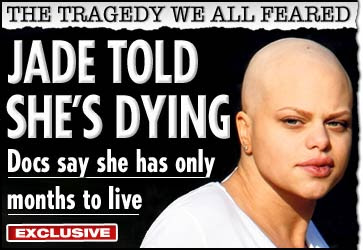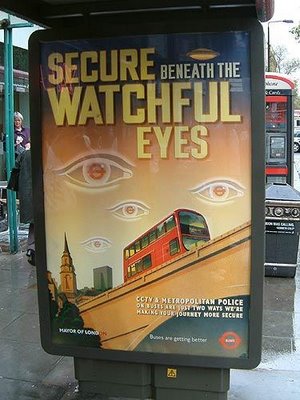 Partly because the moral panic about Ecstasy has long since died away, and partly because it was well-known that Jacqui Smith and the Home Office would reject any suggestion whatsoever that the drug should be downgraded to Class B, the publication of the Advisory Council on the Misuse of Drugs' report on the harm associated with the drug, and the predicted refusal to accept their advice to downgrade it have been rather underwhelmingly reported. This is a shame, because it's quite clear that when compared to the decision to upgrade cannabis to Class B, the refusal to downgrade Ecstasy is just as outrageous and contemptible.
Partly because the moral panic about Ecstasy has long since died away, and partly because it was well-known that Jacqui Smith and the Home Office would reject any suggestion whatsoever that the drug should be downgraded to Class B, the publication of the Advisory Council on the Misuse of Drugs' report on the harm associated with the drug, and the predicted refusal to accept their advice to downgrade it have been rather underwhelmingly reported. This is a shame, because it's quite clear that when compared to the decision to upgrade cannabis to Class B, the refusal to downgrade Ecstasy is just as outrageous and contemptible.
The problem with our drug laws only gets more and more obvious as the years go by. The Misuse of Drugs Act 1971 is the root of all the problems: it is, to use the horrible cliche, not fit for purpose. The prohibition of drugs has not stopped their use; it has rather only increased it, enriched the criminals that sell them and made it even more difficult to treat those who become addicted. The key problem though is that the 1971 act is blanket prohibition masquerading, with the involvement of the ACMD, as a harm reduction strategy when it is nothing of the sort. This fiction is kept up by the three separate classes of drugs, with the most dangerous and most harmful in Class A, with the least harmful but still illegal in Class C. The classification system is however completely and utterly broken; it has the more or less completely harmless magic mushrooms in Class A, alongside the also relatively benign LSD and Ecstasy, while cigarettes which kill hundreds of thousands across the world every year, is in none of the categories. Likewise, alcohol, which can cause untold misery and precipitates violence, is also completely legal.
Both should of course remain completely legal; if individuals want to slowly poison themselves, especially with tobacco and nicotine, then they are perfectly entitled to do so as long as they don't harm others at the same time. Our liberated attitude towards tobacco and alcohol is in sharp contrast to that towards cannabis, which although can cause harm, as heavy use suggests that it can induce psychosis, as well as having similar effects on the lungs when smoked to tobacco, remains illegal and demonised by the popular press. Ecstasy is arguably even safer than cannabis: the ACMD report and David Nutt's previous article which compared MDMA use in harm terms to horse riding, both argue that the main danger when using the drug is that users become either dehydrated, from drinking too little while dancing, to becoming too hot, or more rarely, develop hyponatraemia, where too much water is drank, which notably was the actual cause of death in the case of Leah Betts. MDMA itself is only toxic when taken in very high doses, which is rare. It's also not addictive, there is little concrete evidence as yet that it has long-term side effects, although some studies have suggested there may be memory problems in later life, and unlike cocaine, heroin or indeed alcohol, it tends not to lead to violence among those who take it; quite the opposite, in fact. The other main cause for concern is directly associated with its illegality: it's impossible to know what else is in the pill other than MDMA, or indeed whether there is any MDMA in what you've bought at all, or whether it might instead contain its sister, MDA, or other substances. If anything, the levels of MDMA in the pills has declined over time: the pills which became exceptionally popular due to their intensity during the early 90s, named "love doves" after the dove stamped on them, have long gone, as have the similarly well-remembered initial "Mitsubishis", stamped with the car company's logo, from the late 90s. MDMA "powder", which is regarded as more likely to be purer, has increased in popularity as a result.
Compared to the insanity which is the Class A status of magic mushrooms, or Psilocybin mushrooms to give them their proper name, Ecstasy's status looks reasonably rational. That something which grows perfectly naturally of its own accord is illegal is a mind-twister by itself; when you consider that the number of people who have died as a result of taking shrooms numbers between 0 and 10 despite evidence that they have been used since before the earliest recorded history makes it even more ludicrous. The only thing that's going to damage someone from taking magic mushrooms is what a bad trip might do to their psyche, and even then most will get over it with no problems whatsoever.
The government itself knows that once the debate has moved on from the hysteria to the actual scientific evidence regarding harm, the blanket prohibition on drugs is now fast becoming completely untenable. This is why it has withdrawn from so much as bothering to argue their case regarding the softer drugs, and was doubtless ecstatic to be helped along regarding cannabis by the useful idiots in the press that claimed that the cannabis of today was 20 or 30 times stronger than before, when this was demonstrably not the case. Instead, it's had to settle on "sending a message"; it was sending a message that smoking cannabis was unacceptable by raising it to Class B, while emphasising the dangers of the new ultra-strength skunk, just as it is now sending a message that taking Ecstasy is unacceptable by keeping it in Class A. Ever since the initial moral panic over heroin in the 1960s, the press has helped with the idea that most drugs are unpredictably deadly, while public opinion has also stayed in much the same position, supporting prohibition and most recently the raising of cannabis back up to Class B.The ACMD in essence completely wasted its time in bothering to review Ecstasy, because the government had already made plain and clear that regardless of what their review said, Ecstasy would stay in Class A, as Transform made more than clear in their submission to the ACMD (PDF). At least the policy on ecstasy has been consistent: the downgrading of cannabis, which was in line with the ACMD's recommendation, was then overturned once the government decided that to upgrade it again was politically expedient, regardless of their scientific analysis. If the members of the ACMD had something resembling guts, they would resign en masse, as after all, what is the point of an advisory council which delivers independent advice based on a review of the all the relative literature and evidence if that evidence is going to be completely disregarded because it doesn't fit with the government's pre-defined policy? Instead, David Nutt apologised to Jacqui Smithover his comparison of the dangers of Ecstasy and horse riding after she disgracefully criticised him in parliament. His article ruthlessly exposed the stupidity inherent in our current policy towards drugs, and also ruthlessly exposed our government ministers as being just as stupid, and just as cowardly in the face of the ignorance but deafening noise of the tabloid press. Evidence-based policy has never been such a contradiction in terms.Labels: Advisory Council on the Misuse of Drugs, drug policies, drug prohibition, drug stupidity, drugs, Ecstasy, Home Office, Jacqui Smith, war on drugs





